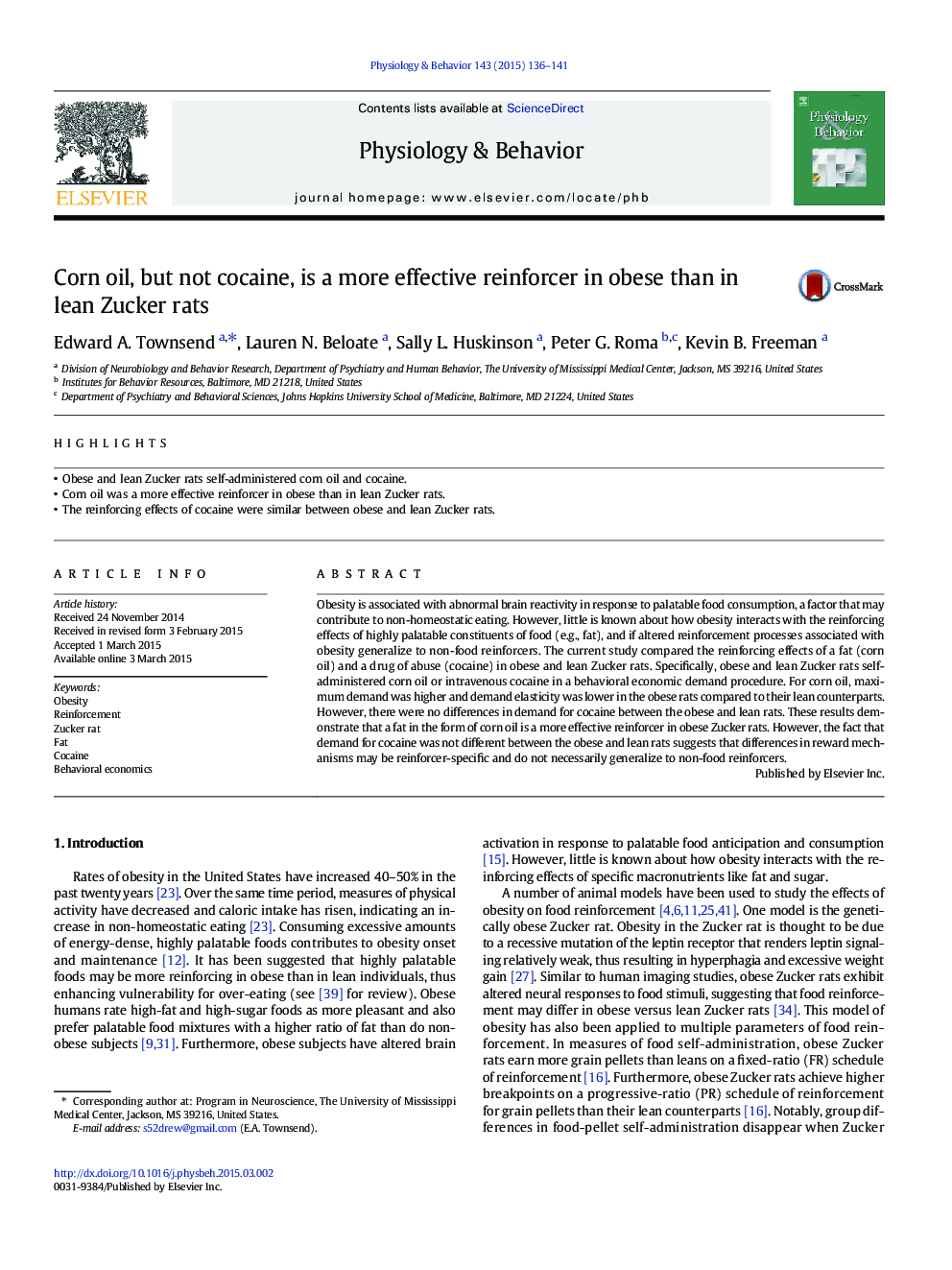| Article ID | Journal | Published Year | Pages | File Type |
|---|---|---|---|---|
| 5923715 | Physiology & Behavior | 2015 | 6 Pages |
â¢Obese and lean Zucker rats self-administered corn oil and cocaine.â¢Corn oil was a more effective reinforcer in obese than in lean Zucker rats.â¢The reinforcing effects of cocaine were similar between obese and lean Zucker rats.
Obesity is associated with abnormal brain reactivity in response to palatable food consumption, a factor that may contribute to non-homeostatic eating. However, little is known about how obesity interacts with the reinforcing effects of highly palatable constituents of food (e.g., fat), and if altered reinforcement processes associated with obesity generalize to non-food reinforcers. The current study compared the reinforcing effects of a fat (corn oil) and a drug of abuse (cocaine) in obese and lean Zucker rats. Specifically, obese and lean Zucker rats self-administered corn oil or intravenous cocaine in a behavioral economic demand procedure. For corn oil, maximum demand was higher and demand elasticity was lower in the obese rats compared to their lean counterparts. However, there were no differences in demand for cocaine between the obese and lean rats. These results demonstrate that a fat in the form of corn oil is a more effective reinforcer in obese Zucker rats. However, the fact that demand for cocaine was not different between the obese and lean rats suggests that differences in reward mechanisms may be reinforcer-specific and do not necessarily generalize to non-food reinforcers.
